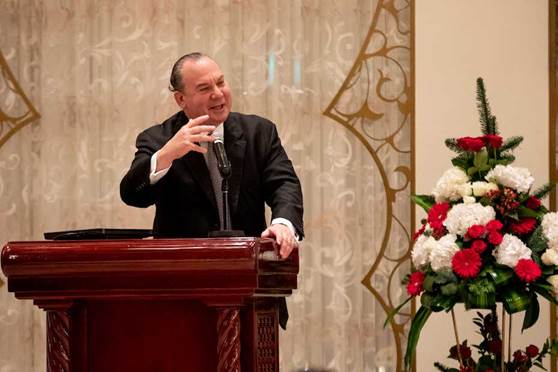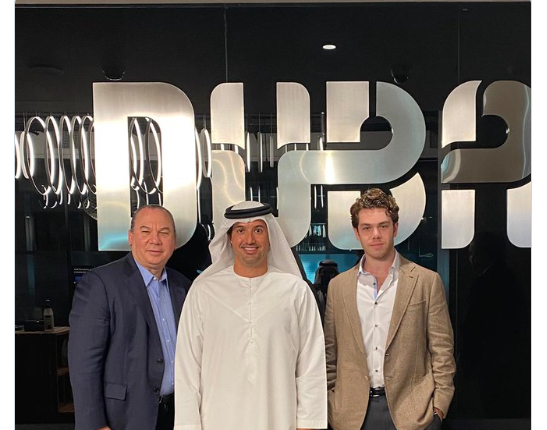
Gulf Business
By Aarti Nagraj
December 15, 2020
Rabbi Marc Schneier is launching new tourism initiatives in the GCC

As Rabbi Marc Schneier tells me when we meet, that while those doing the economic deals fly at 30,000 feet, he’s always flown at 70,000 ft.
The American – whose book Sons of Abraham was recently published in English and Arabic for distribution in the region – has played a key role is driving Jewish-Muslim relations, especially with the GCC states, far before the Abraham Accords were signed earlier this year.
His strong connections with leaders in Saudi Arabia (he was associated closely with former King Abdullah) and Bahrain has seen the rabbi work towards boosting interfaith relations as well as promoting economic and cultural ties.
“My vision, when I first wrote the book in 2013, was that one day when there would be peace between Israelis and Arabs, between Jews and Muslims, that we might attain that kind of understanding on the leadership level. But in terms of the masses, how can you achieve the peace if you don’t understand the other?
“There’s such misunderstandings here in terms of our texts, in terms of our traditions. But, at the end of the day, there are no two other religions that have more in common than Islam and Judaism,” he explains.
“So my mission that already began 18 years ago, was to try and find the path to narrow the gap that divides the chasm between 1.6 billion Muslims and 16 million Jews. So this has been a very, very formidable journey for me. Globally, I’ve had great focus here in the Gulf, because of my own interest in seeing Gulf-Israel relations develop.”

The rabbi took an unprecedented step in 2018, when he brought a congregation from his Hamptons synagogue to Bahrain on the invitation of the king.
“We were the first Jewish congregation in history to travel to the Gulf,” he says.
“We first went to Bahrain, and then to Israel. When we did it, particularly within our community at all major Jewish population centres [in the US], there was tremendous curiosity. But there was also hesitation about – ‘is there any Jewish infrastructure’, is there a kosher restaurant, a synagogue or a prayer house’.”
While some of those aspects are already being addressed in both the UAE and Bahrain – several hotels and restaurants have started offering kosher food – there is still more awareness building that needs to be done – especially in the US, stresses the rabbi.
“We still have a way to go in terms of educating the American Jewish community – not only for opportunities, but in terms of their own security and welfare. And that will be a process here,” he explains.
“American Jews are not going to want to travel here individually, first they are going to want to go in groups – through their synagogues, through their organisations. It’s a process. Which is also very different from that of Israelis.”
To support that process, he is bringing in US-based Jewish travel company Da’at to Bahrain.

“Over the next in the coming months, we’re going to be announcing initiatives for different countries in the Gulf,” he confirms.
“There are thousands of synagogues in the US that can afford to travel. Today in the American Jewish community, if you are going to Israel, if you want an Arab experience, you go to Egypt, Jordan, Morocco or even Azerbaijan – but no one’s ever thought of going to the Gulf. And the Gulf is probably much more in concert with our values – particularly our economic values back in the States. So it’s just a natural partnership and someone needs to head this thing up – and someone needs to launch this initiative and that’s what I’m doing now,” he adds.
The rabbi also stresses that bringing American Jews to the Gulf will not boost the region’s tourism, but also support its economy.
“You’re going to have many Jews who are traveling to these destinations. And I think they will have a profound impact. But from an economic point of view, putting aside the fact that the Jewish American Jewish travel industry is a multi billion dollar industry, you’re also dealing with American Jews that are looking for investment opportunities, and that would be a tremendous boon to the Gulf as well,” he explains.
“This is going to have a ripple effect in so many ways,” he adds.
Copyright © 2025 Foundation For Ethnic Understanding. All rights reserved. | Privacy Policy